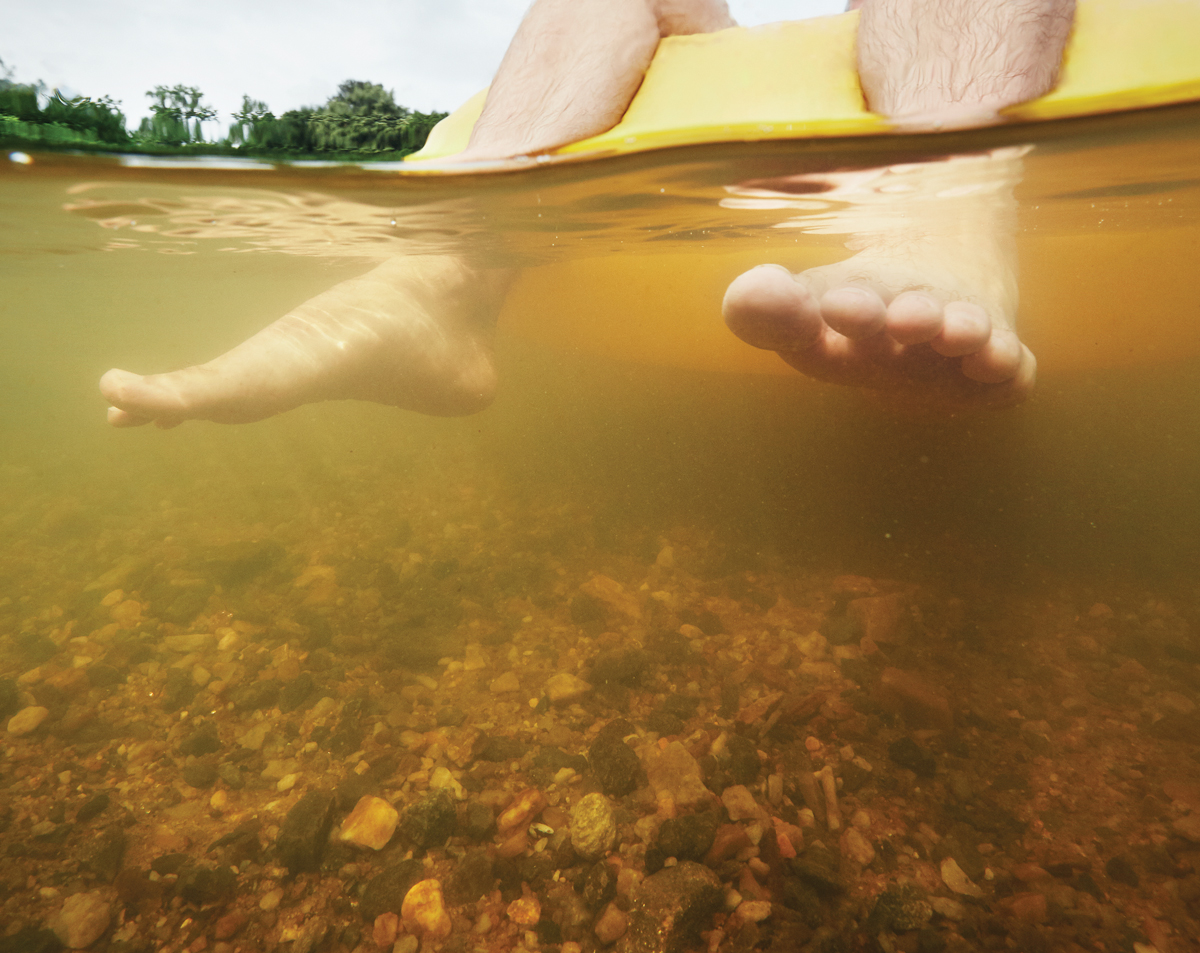TagsChattahoochee RiverChattahoochee RiverkeeperChattahoochee waterMetropolitan River Protection Act
Home How clean is the Chattahoochee River water?
The complete guide to the Chattahoochee River
How clean is the Chattahoochee River water?

Photograph by John E. McDonald
Is the Chattahoochee dirty?
In the 1960s and 1970s dissolved oxygen levels in the Chattahoochee River threatened fish. E. Coli levels discouraged government agencies from building access points in some areas, says Jason Ulseth of the Chattahoochee Riverkeeper, a nonprofit that patrols and protects the river. But today, he says, “the river is now cleaner than it has been in decades.” Higher levels of bacteria like E. coli and pollutants are more likely after heavy rains and in the summer when temperatures rise. And though sewage spills into the river have decreased in the last decade or so, they still occur. But there is more to do. Most parts of the Chattahoochee are monitored by the Georgia Environmental Protection Division and United States Geological Survey.
How did it get clean?
In 1973 the state passed the Metropolitan River Protection Act, setting strict rules on new development within 2,000 feet of the river. (Existing structures, such as the ones occupied by restaurants Canoe and Ray’s on the River, were grandfathered in.) After the Riverkeeper filed a lawsuit in 1995 against Atlanta over sewage spills, a federal judge ordered a $3 billion overhaul of the city’s once-decrepit sewer system—and a $20,000 fine per spill. Environmental officials have noticed a sizable decrease in city sewage spills: from 1,452 in 2001 to 627 in 2014. More awareness about pollution has also helped, says Jerry Hightower, a park ranger who’s spent more than 35 years at the recreation area.
Can we swim in it?
Yes. And fish caught in the park are safe to eat, officials say; however, you should limit your consumption of some species from certain areas. If the water is cloudy, there’s probably high bacteria, Hightower says. Don’t swallow it.
How is it protected?
The Riverkeeper, park rangers, local governments, and state and federal environmental officials monitor the waterway. Ninety volunteers help Riverkeeper staff collect water samples at roughly 150 sites to pinpoint spill locations and high bacteria, filling gaps the USGS can’t cover. Environmental advocates also play defense at the Georgia Capitol to block efforts by some state lawmakers to ease laws about developing near streams.
So the Chattahoochee is in the clear?
Not exactly. Sewage and pollutants, plus trash and bacteria from the tributaries feeding into the Chattahoochee, still occasionally wash into the river. The Riverkeeper has found “hundreds” of companies—and is currently suing one—in the Chattahoochee watershed that allegedly violated clean water laws. Heavy deluges associated with climate change can overwhelm the river with stormwater and contaminants. Droughts result in less water for marine life and slower flows, helping bacteria to grow, so conservation is key. Another friend of bacteria, says Hightower: lawn chemicals and dog poop left in the park and near creeks. Where do you think that ends up?









